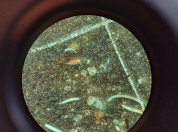Droevendaalsesteeg 10
6708 PB Wageningen
The Netherlands
Soils are complex environments where climate, vegetation, and soil organisms regulate nutrient cycling and soil organic matter decomposition. I aim to untangle the biotic and abiotic drivers of soil carbon persistence to enhance ecosystem resilience.
I obtained my master in environmental biogengineering at the University of Liège in Belgium (2017), for which I studied the impacts of termite activity on soil physico chemical properties in an Indian agroecological farm. My interest in soil macrofauna was further reinforced during my PhD in soil science at the University of Alberta in Canada (2022) , where I researched the impacts of invasive earthworms on soils of the boreal forest, with a special focus on carbon dynamics.
Soil microbial communities regulate organic matter decomposition and consequent carbon sequestration. Through microbivory and detritivory, soil fauna can greatly modulate microbial dynamics, but the consequences for soil carbon cycling are mostly overlooked. I aim to untangle the drivers of soil carbon dynamics through manipulations of soil faunal communities. This will shed light on the importance of the whole soil food web for soil organic matter dynamics so that we can ensure ecosystem resilience.
I recently obtained a Marie Skłodowska-Curie Actions Postdoctoral fellowship to study the role of soil micro- and mesofauna in soil organic matter dynamics and carbon cycling, with a focus on microbial necromass (Soil Fauna MIND). This project will develop a mechanistic understanding of the role of different trophic relationships in soil carbon dynamics.




